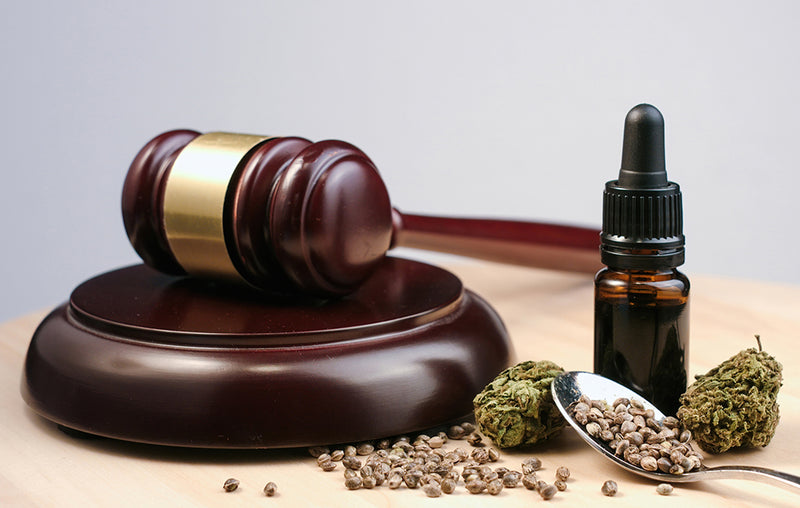As the use of CBD continues to rise in popularity, it’s essential to understand the legal status of this substance. CBD, short for cannabidiol, is a non-psychoactive compound found in the cannabis plant. While some states have legalized marijuana, the legal status of CBD remains unclear in many parts of the world.
In this article, we’ll explore the legal status of CBD and what you need to know to ensure that you’re not breaking any laws.
Contents
Understanding the Difference Between Hemp and Marijuana
Before we dive into the legal status of CBD, it’s essential to understand the difference between hemp and marijuana. Both plants come from the cannabis family, but they have different chemical compositions.
Marijuana contains high levels of THC, which is the psychoactive compound responsible for the “high” that users experience. Hemp, on the other hand, contains very little THC, but high levels of CBD.

In 2018, the Farm Bill legalized hemp and hemp-derived products, including CBD, as long as they contain less than 0.3% THC. However, marijuana remains illegal on a federal level.
State-by-State Regulations
While the Farm Bill legalized hemp-derived CBD on a federal level, the legal status of CBD varies from state to state. Some states have legalized marijuana for medicinal or recreational use, while others have strict regulations on CBD.
For example, in California, marijuana is legal for both medicinal and recreational use, and CBD is legal as long as it’s derived from hemp and contains less than 0.3% THC. In contrast, Idaho has some of the strictest CBD laws in the country, where CBD is only legal for specific medical conditions.
It’s essential to research the CBD laws in your state and any state you plan on traveling to before purchasing or using any CBD products.
FDA Regulations
While the Farm Bill legalized hemp-derived CBD, the FDA still regulates CBD products. The FDA does not currently recognize CBD as a dietary supplement or food ingredient, and it’s illegal to add CBD to food or drink products.
The FDA has approved one CBD product, Epidiolex, for the treatment of two rare forms of epilepsy. However, the FDA has issued warning letters to companies that make false claims about the health benefits of CBD products.
It’s essential to research any CBD products before purchasing them and to ensure that they are from a reputable source.
Drug Testing
While CBD itself is not psychoactive and will not cause a positive drug test, some CBD products contain trace amounts of THC. If you’re regularly using a CBD product that contains THC, it’s possible that it could show up on a drug test.
It’s essential to research any CBD products you’re considering using and to ensure that they contain less than 0.3% THC if you’re concerned about drug testing.
Conclusion
The legal status of CBD is complex and varies from state to state. While hemp-derived CBD is legal on a federal level, it’s essential to research the CBD laws in your state and any state you plan on traveling to before purchasing or using any CBD products.
It’s also important to research any CBD products before purchasing them and to ensure that they are from a reputable source. While the health benefits of CBD are promising, it’s essential to be informed and use caution when using any new substance.




[…] can be derived from hemp or marijuana plants, and each has its own unique properties. Hemp-derived CBD is legal in most states and contains only trace amounts of THC, the psychoactive compound found in […]